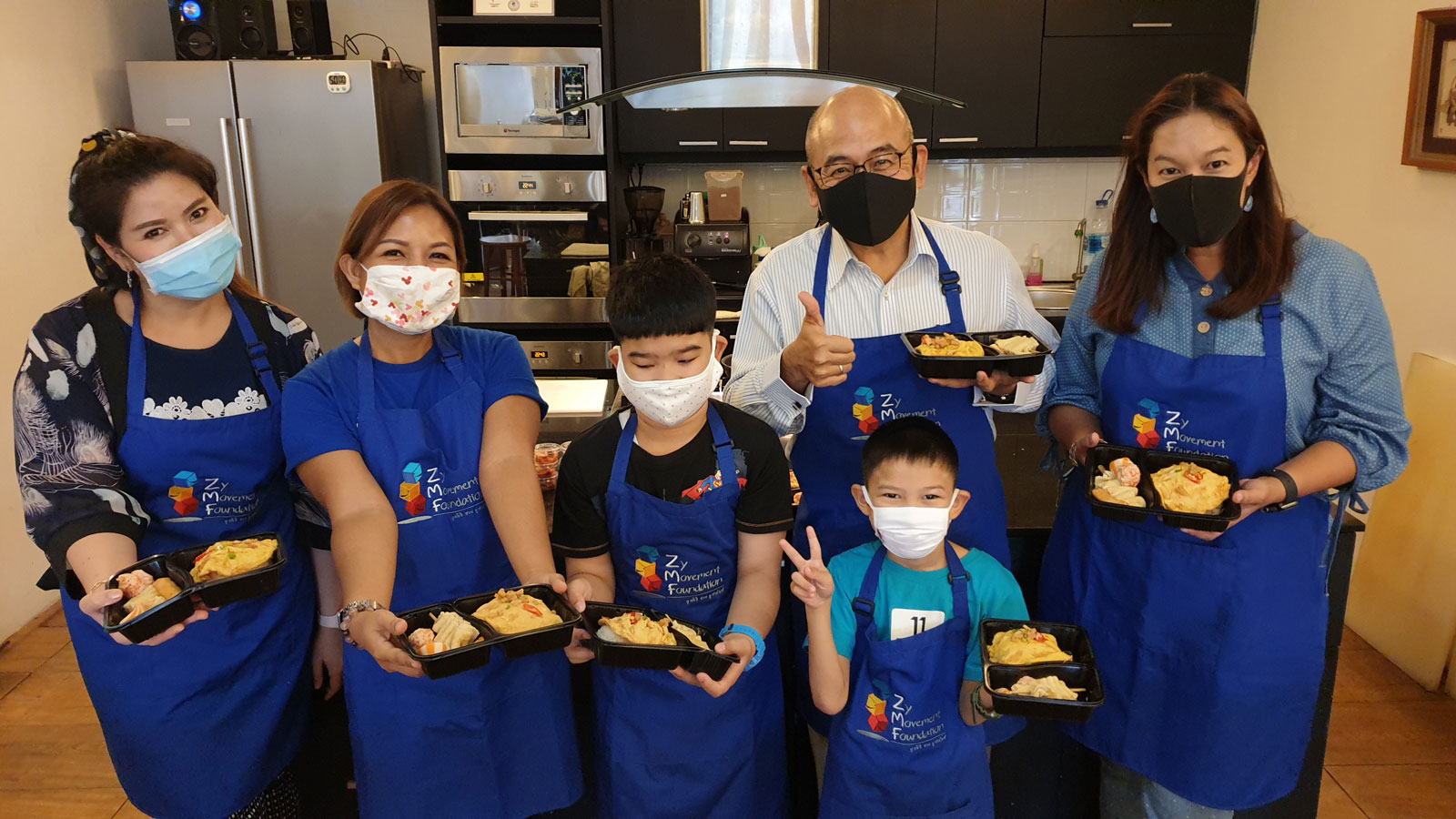Global Fund for Children is supporting grassroots organizations responding to the coronavirus pandemic around the world. Meet the GFC partners that have received emergency grants to keep children and youth safe during COVID-19.
Since the onset of the pandemic, GFC has issued emergency grants to more than 140 partners in 41 countries. Use the menus below to learn more about these partners by region and by country.
The Americas
Africa & the Middle East
Europe & Eurasia
Asia
The Americas
Brazil | Colombia | Dominican Republic | Ecuador | Guatemala | Haiti | Honduras | Mexico | Nicaragua | Panama | Peru | United States
Brazil
Onda Solidária
Brazil | Rio de Janeiro
Onda Solidária promotes social inclusion by offering opportunities in low-income communities and encouraging the general public to participate in the organization’s activities to advance justice and equality.
Viva a Vida
Brazil | Camaçari, Bahia
Viva a Vida uses arts education (such as theater, poetry, graffiti, and photography) to empower at-risk adolescents and youth to make healthy choices and develop self-esteem, autonomy, and control over their lives. Its work focuses on the prevention of drug abuse, combating violence, and guaranteeing human and socio-environmental rights.
Colombia
Fundación Chocó Jóven
Colombia | Quibdó
Chocó Joven employs a combination of educational, vocational, cultural, health, and human rights programs to promote leadership and empowerment among youth in the department of Chocó.
Fundación Dar Amor
Colombia | Cali
Fundación Dar Amor (Fundamor) transforms the lives of children and youth affected by or living with HIV and AIDS through medical attention, personalized emotional care, tutoring, and other holistic services.
Dominican Republic
Fundación La Merced
Dominican Republic | Santo Domingo Oeste
Fundación La Merced (FLM) aims to eradicate child labor in Santo Domingo Oeste by providing integrated support services to child laborers and their families and by guaranteeing that their rights are respected.
Unión GTH Vegana
Dominican Republic | La Vega
Unión GTH Vegana promotes the rights of LGBT adolescents and youth in the province of La Vega and works to ensure equal access to friendly, high-quality, and comprehensive public services.
Ecuador
Asociación Comunitaria Hilarte
Ecuador | Guayaquil
Asociación Comunitaria Hilarte provides educational and rehabilitation services for children and young people in Guayaquil, using art and play as its primary tools.
Guatemala
Asociación AMA
Guatemala | Poptún, Petén
Asociación AMA is dedicated to promoting leadership, democratic participation, sustainable economic development, and access to comprehensive education on sexuality and sexual and reproductive rights for women and youth in Peten.
Read more: Pandemic or not, the fight for girls’ rights perseveres in Guatemala
Asociación Generando
Guatemala | Chimaltengango
Using a feminist, youth-centered, and culturally appropriate approach, Asociación Generando (ASOGEN) advances human rights and provides integrated support services to survivors of gender-based and sexual violence.
Asociación Pop No’j
Guatemala | Guatemala City
Asociación Pop No’j facilitates the formation of indigenous leaders through exchange and dialogue and works to build indigenous youth networks in Guatemala.
Asociación Tan Ux’il
Guatemala | Petén
Founded by youth in Petén, Tan Ux’il (We Are Growing) promotes rights-based sexual and reproductive health education as an essential strategy to combat STIs, unwanted pregnancies, and sexual violence among adolescents and youth. Its trained youth promotors – who come from some of the most marginalized communities in Petén – use a peer education model to provide counseling, help young people reflect on power relations and other behaviors, and promote youth’s access to contraceptives.
Coincidir
Guatemala | Guatemala City
Coincidir defends the rights of children and youth in Guatemala through a grassroots movement that connects girls in rural communities and small urban centers affected by social violence with youth-led advocacy for policy and social change.
Read more: Humanitarian aid that empowers communities
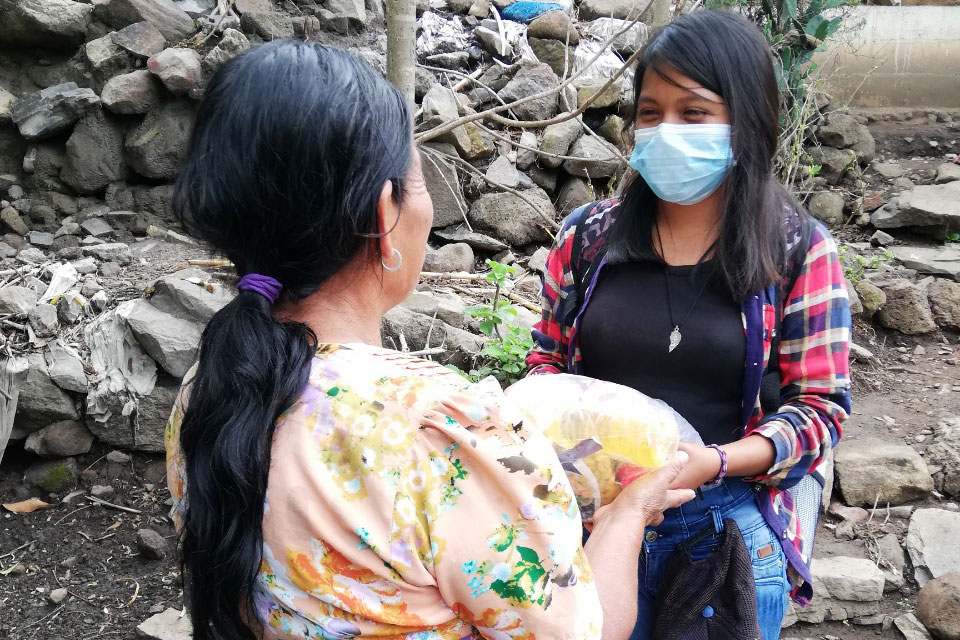
Colectivo Vida Digna
Guatemala | Quetzaltenango
Vida Digna is a Mayan organization in the western highlands of Guatemala dedicated to affirming indigenous migrant identities. Vida Digna supports young people, women, and families from the countryside to fulfill their potential and to support the growth of their communities.
Read more: Indigenous youth facing COVID-19: Pride and community organizing
Jóvenes por el Cambio
Guatemala | San Marcos
Formed by young people from the department of San Marcos, Jóvenes por el Cambio develops the social and educational capacity of children and young migrants from the region. In addition to providing direct assistance and facilitating workshops and trainings aimed at migrant children and youth, the organization is part of numerous advocacy networks at the transnational and local levels.
Organización Sololateca por los Derechos de las Mujeres Jóvenes Indígenas
Guatemala | Nahuala
Organización Sololateca por los Derechos de las Mujeres Jóvenes Indígenas (SPDMJI) designs and facilitates workshops with girls, adolescents, and women on issues of self-esteem, gender-equity, indigenous women’s rights, and preventing early and forced marriage and violence against women.
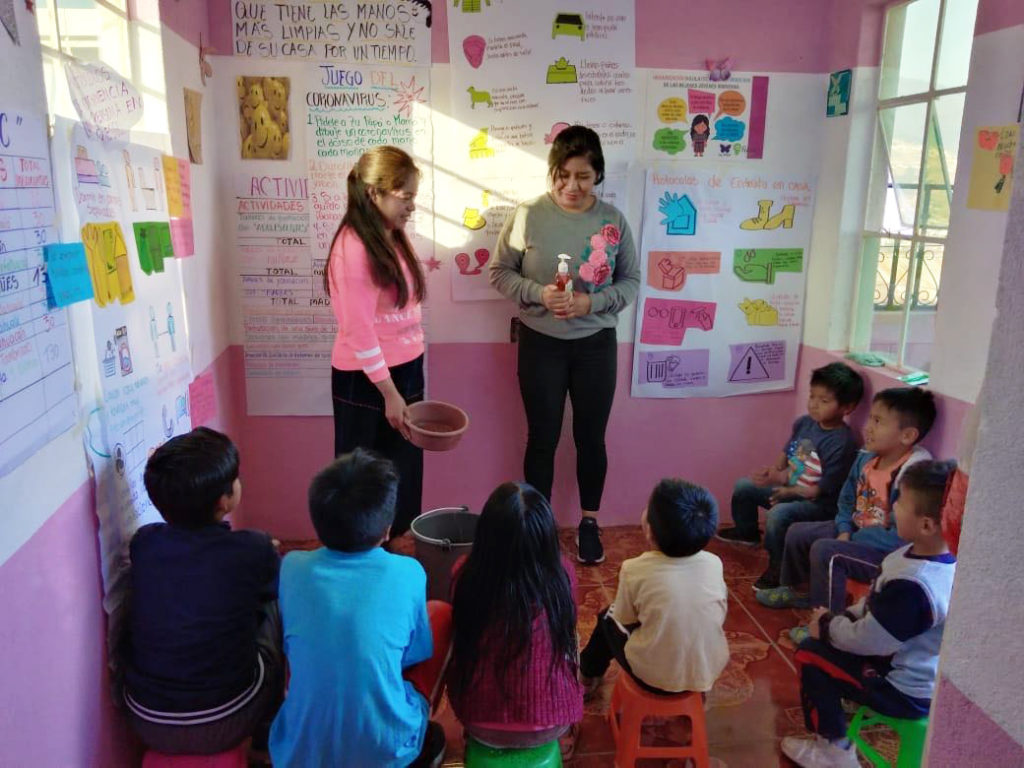
Women’s Justice Initiative
Guatemala | Patzún
Working closely with rural communities, Women’s Justice Initiative improves the lives of Guatemalan indigenous women and girls through education, access to legal services, and gender-based violence prevention. Its adolescent girls program works to prevent early and forced marriage through improving girls’ knowledge of their rights; transforming local norms that condone child marriage; creating safe spaces for girls; and ensuring that parents and community leaders take action to delay early marriage.
Haiti
Association Zanmi Timoun
Haiti | Port-au-Prince
Association Zanmi Timoun contributes to Haiti’s economic and social change by improving the living conditions of destitute children and youth throughout the country, particularly those who have fallen victim to exploitation, abuse, neglect, trafficking, or violence.
Organisation Haitienne pour le Développement Durable
Haiti | Petit-Goâve
Located in Petit-Goâve’s Delattre community, Organisation Haitienne pour le Developpement Durable (OHDD) promotes sustainable development through education, culture, civic engagement, and environmental protection.
Honduras
Artemisa
Honduras | Tegucigalpa
Artemisa promotes the empowerment of girls, youth, and adolescents of all genders through a feminist and sexual diversity lens using art, theater, and dynamic discussions around social inclusion, sexual and reproductive health and rights, access to justice, and human rights.
Gojoven Honduras
Honduras | Tegucigalpa
A youth-led and youth-serving organization, GOJoven Honduras promotes comprehensive development to improve the quality of life of adolescents and youth through capacity-building, collective advocacy, and a focus on guaranteeing sexual and reproductive health and rights (SRHR) for all youth in Honduras.
Organización para el Empoderamiento de la Juventud
Honduras | El Progreso
Organización para el Empoderamiento de la Juventud (OYE) builds socially conscious youth leaders and encourages high academic achievement through a competitive scholarship program and community engagement projects that include a youth-run radio station, a magazine, public arts, and graphic design.
Redes Juveniles de la MANORCHO
Honduras | Choluteca
Redes Juveniles de la MANORCHO are a consortium of four municipal youth networks that promote leadership trainings for young people in rural villages and advocate with their respective municipal governments for appropriate investment of public funds designated for youth programs.
Un Mundo
Honduras | La Ceiba
Un Mundo is a community development organization that promotes dignity, community, and self-sufficiency of people living in the protected watershed of the Cangrejal river through access to sustainable education, health, and livelihoods services.
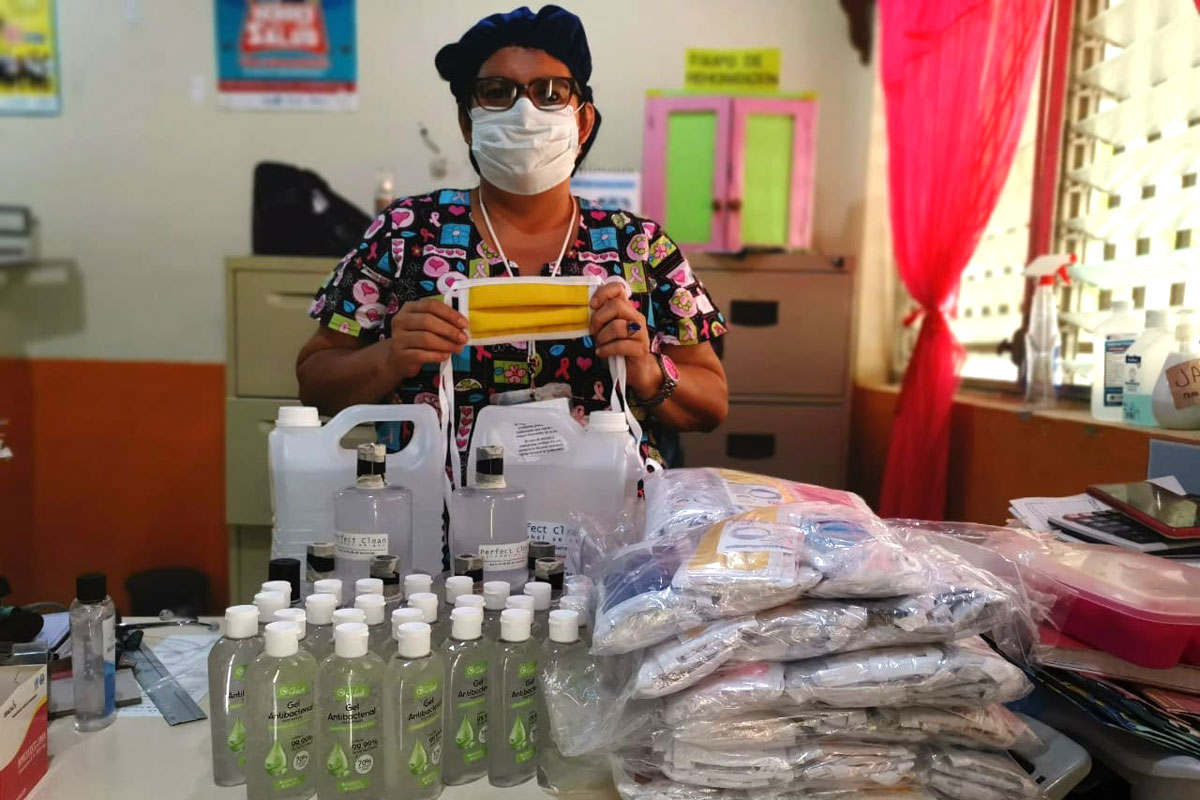
Unidad de Desarrollo Integral de la Mujer y la Familia
Honduras | La Ceiba
Unidad de Desarrollo Integral de la Mujer y la Familia (UDIMUF) works to build a more peaceful, equitable, and just society that transforms inequitable gender relationships and contributes to decreasing violence against women. Its programming includes working with middle and high school girls to build their leadership, knowledge in civic participation, sexual health and rights, and skills to protect themselves against sexual abuse and violence.
Mexico
Al Otro Lado
Mexico | Tijuana
Al Otro Lado is a bi-national, direct legal services organization serving indigent deportees, migrants, and refugees in Tijuana, Mexico.
Alianza para la Integración Comunitaria UTOPIA A.C
Mexico | Mexico City
Alianza para la Integración Comunitaria UTOPIA A.C. (APIC UTOPIA) promotes a healthy childhood for children and youth in and around Mexico City through academic and extracurricular activities that improve participants’ educational attainment, well-being, and chances for success.
Centro de Derechos Humanos Fray Matías de Córdova
Mexico | Tapachula
The Human Rights Center Fray Matías de Córdova specializes in the defense and promotion of the human rights of refugees, asylum seekers, international migrant population and their families.
Centro Integral de Atención a las Mujeres
Mexico | Cancun, Quintana Roo
Centro Integral de Atención a las Mujeres (CIAM) works to prevent all forms of violence against women and children through its contextualized and community-based peace education programs.
Read more: Finding new ways to help
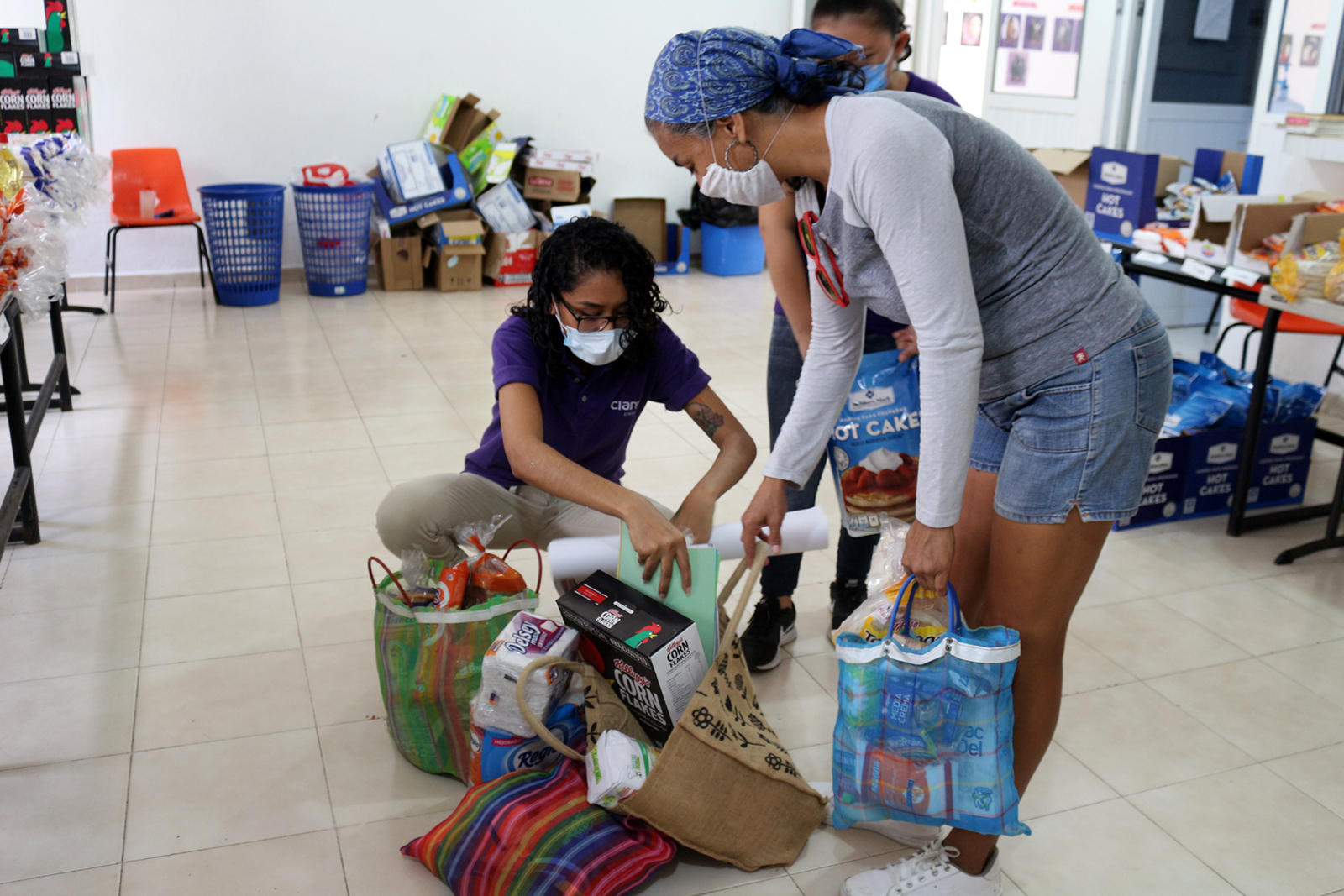
Chantiik Taj Tajinkutik
Mexico | San Cristobal de las Casas
Chantiik Taj Tajinkutik provides dignified support and skills training to street-working children and youth by involving them in workshops to learn about their rights, gain new skills, and obtain a job that will pay a fair wage once they turn 18.
Colectivo Seres
Mexico | Guanajuato
Colectivo Seres supports children and youth at risk for or living with HIV/AIDS, offering prevention education and HIV testing for at-risk populations and providing direct services to HIV-positive children and youth to improve their quality of life, help them avoid stigmatization, and ensure that they receive proper care from local and public entities.
Espacio Migrante
Mexico | Tijuana
A bi-national organization that works in San Diego and Tijuana, Espacio Migrante works to protect the human rights of migrants and refugees, empower migrant communities, improve their quality of life, research the phenomenon of migration, and raise awareness of the issue.
México y Caribe Jóvenes A.C.
Mexico | Chetumal, Quintana Roo
México y Caribe Jóvenes works to advance the rights of young people, particularly their sexual and reproductive rights, by educating youth and training them to be community leaders.
Otros Dreams en Acción
Mexico | Mexico City
ODA works to build a transnational community for reintegration support and advocacy for the rights of returned and deported migrants in Mexico. ODA and its bicultural community space Poch@ House empower young migrants with direct services, educational activities, and cultural advocacy to help them achieve their dreams.
Red + Posithiva de Quintana Roo
Mexico | Cancun, Quintana Roo
Red + Posithiva de Quintana Roo provides HIV prevention education and comprehensive health services to people living with HIV in all ten municipalities of Quintana Roo.
Voces Mesoamericanas Acción con Pueblos Migrantes A.C
Mexico | San Cristóbal de las Casas
Voces promotes the organization and voices of indigenous migrants (especially children, women, and youth) for the defense and exercise of their rights and to help them build “Lekil Kuxlejal” (good living) in the migrant and transnational communities of Mesoamerica and North America.
Nicaragua
For security reasons, GFC is naming its partner organizations in Nicaragua only when they have asked to be publicly identified.
Panama
Fundación Espacio Creativo
Panama | Panama City
Fundación Espacio Creativo (FEC) transforms lives through dance and education in Panama. FEC uses contemporary dance as a tool for personal and social transformation in children and adolescents from vulnerable communities.
Peru
Ashanti Perú – Red Peruana de Jovenes Afrodescendientes
Peru | Lima
Ashanti Perú – Red Peruana de Jovenes Afrodescendientes is a youth-led network that works with and on behalf of Afro-descendent children and youth to combat racism, discrimination, and poverty through active and effective participation in public spaces.
Read more: In Lima, Afro-Peruvian youth mobilize to provide coronavirus relief
Asociación Civil Los Pioneros
Peru | Callao
Asociación Civil Los Pioneros promotes safe, healthy communities in Callao through soccer, life skills training, youth enterprise projects, and peace education.
Asociación Educativa Kusi Kawsay
Peru | Cusco
Asociación Educativa Kusi Kawsay is an independent nonprofit school that educates low-income indigenous children through a curriculum that incorporates Waldorf methodology as well as traditional Andean cultural values.
united States
Courtney’s House
United States | Washington, DC
Courtney’s House offers a safe and loving environment and appropriate services to children and teens who have been trafficked for sex in the DC region.
Fihankra Akoma Ntoaso
United States | Washington, DC
Fihankra Akoma Ntoaso (FAN) provides youth in foster care with a safe and stable after-school environment to ensure that they have the educational and social support necessary to escape the cycle of poverty.
Homies Unidos
United States | Los Angeles
Homies Unidos works to end violence and promote peace through gang prevention, promotion of human rights in immigrant communities, and youth empowerment.
Read more: Breaking bread: A community response to the pandemic in Los Angeles
Immigrant Youth Coalition
United States | Los Angeles
The Immigrant Youth Coalition is an undocumented and queer/trans youth-led organization based in California.
Africa & the Middle East
Burundi | Democratic Republic of the Congo | Egypt | Ghana | Kenya | Lebanon | Liberia | Mauritius | Senegal | Sierra Leone | South Africa | Zambia
Burundi
Initiative pour la Promotion de la Santé Rurale et le Développement Intégré au Burundi
Burundi | Bujumbura
Initiative pour la Promotion de la Santé Rurale et le Développement Intégré au Burundi (IPSDI) promotes access to education through after-school learning activities for children in a post-conflict environment, especially girls and internally displaced children and youth, many of whom are, disabled, HIV-positive, or victims of sexual violence.
Democratic Republic of the Congo
Malaika
Democratic Republic of the Congo | Lubumbashi
Malaika provides access to basic education and empowerment opportunities for rural girls; the majority of the girls were displaced by armed conflict, and many of them are involved in child labor or are affected by HIV/AIDS or sexual abuse.
Egypt
Future Lights for Development Organization
Egypt | Cairo
Future Lights for Development Organization (FLDO) works to eradicate poverty in Cairo’s poorest neighborhoods through education and economic empowerment programs.
Ghana
Achievers Ghana Education
Ghana | Accra
Achievers Ghana Education runs a holistic education program targeting slum-based girls who are at risk of or victims of forced child marriage and uses a participatory approach and strong community outreach activities to advocate for girls’ protection and education.
Challenging Heights
Ghana | Accra
Working along Ghana’s Lake Volta, Challenging Heights rescues children from slavery in the fishing industry and provide them with comprehensive rehabilitation services, including helping them safely reunite with their families.
Read more: A silver lining to COVID-19: courage, empathy, and generosity
kenya
Boy Child Initiative
Kenya | Nairobi
In order to address the needs of vulnerable, street-based boys in the Korogocho slum, who are often involved in child labor or trash picking, Boy Child Initiative (BCI) offers early childhood development (ECD) services and second-chance primary education, as well as community sensitization, counseling, mentorship, hygiene, and rehabilitation programs.
Kito International
Kenya | Nairobi
Kito International works with local government structures and other community organizations to offer entrepreneurship and leadership training, scholarships, and mentorships to street-based youth in the Kawangware slum.
Oasis Mathare
Kenya | Nairobi
Through its youth center, located in Nairobi’s Mathare slums, Oasis Mathare provides a safe, social, and educational space for children of all ages to play, work on their homework, and access computers and the internet, while also offering an economic empowerment program for older youth, particularly young mothers.
RefuSHE
Kenya | Nairobi
RefuSHE specializes in identifying and protecting unaccompanied and separated refugee children and youth, especially girls, young women, and their children living in Kenya. Its shelter, education, and community outreach services, coupled with local resources and the refugee community, empower this population to live healthy lives.
Samburu Girls Foundation
Kenya | Samburu County
Working in hard-to-reach rural areas, Samburu Girls Foundation (SGF) provides a safe environment, access to education, and psychosocial and family support to girls who are at risk of or victims of female genital mutilation and forced early marriage, including girls who are living with HIV/AIDS or have suffered sexual abuse or gender-based violence.
Youth Safety Awareness Initiative
Kenya | Nairobi
Dedicated to reducing rates of incarceration and recidivism among Nairobi’s youth, YSAI works directly in prisons to develop young people’s leadership and livelihood skills, while also working with children and youth in the heart of communities – especially in slums, where the incidence of crime is high – to promote community safety and steer them away from crime.
Read more: Young paralegals lead fight against coronavirus in Kenyan community
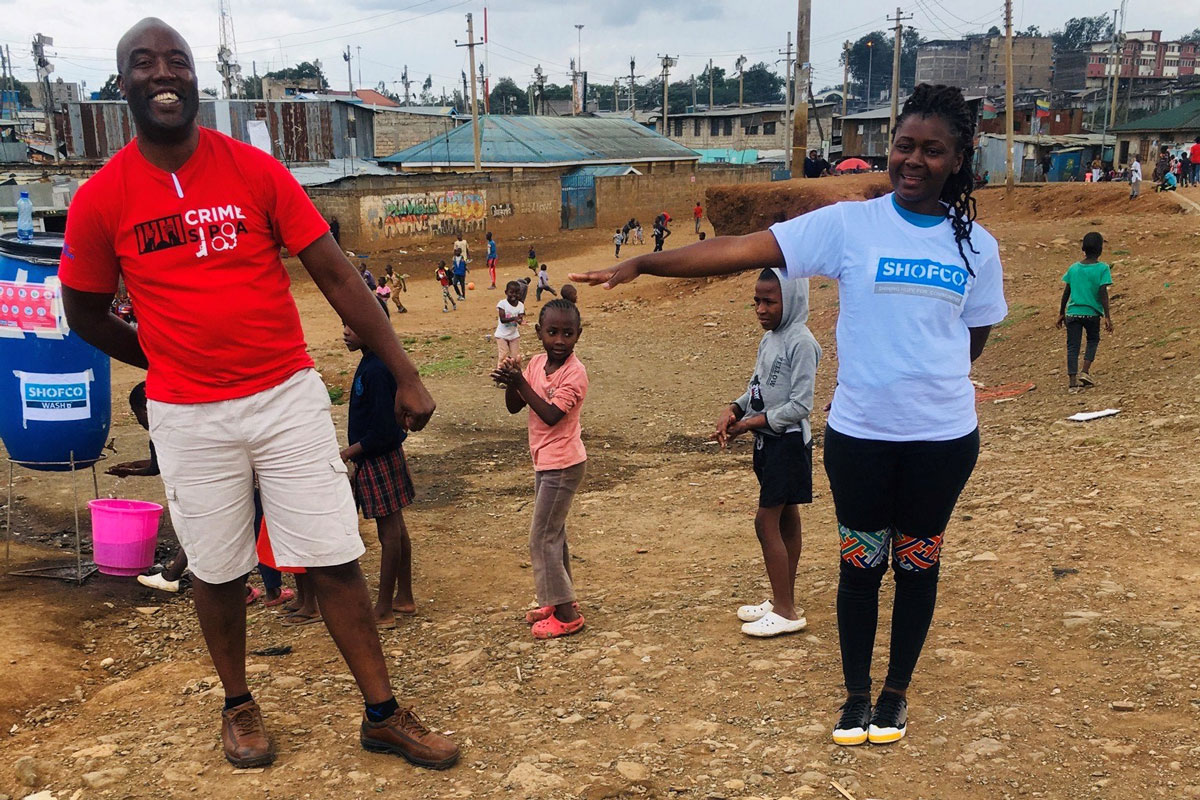
Lebanon
Insan Association
Lebanon | Achrafieh, Beirut
Insan Association promotes the rights of adolescent girls, especially those who are refugees, have been displaced, are involved in domestic work, or have been sexually or physically abused; ensures the girls’ physical safety; and helps them to obtain education, legal representation, and psychosocial support.
Read more: Hope still stands as Lebanon looks to rebuild
Tahaddi
Lebanon | Beirut
Tahaddi provides children and women in Hay al-Gharbeh, a shantytown in Beirut, with access to quality education and health services.
Read more: Hope still stands as Lebanon looks to rebuild
liberia
Center for Liberian Assistance
Liberia | Bo Waterside
In a county where the prevalence of female genital mutilation/cutting (FGM/C) is estimated at 68%, the Centre for Liberian Assistance educates girls about their sexual and reproductive health and rights and empowers them to act boldly on their own behalf. Its awareness and education program brings girls together to discuss girls’ rights and critical health topics, which the girls then raise awareness about in their own communities.
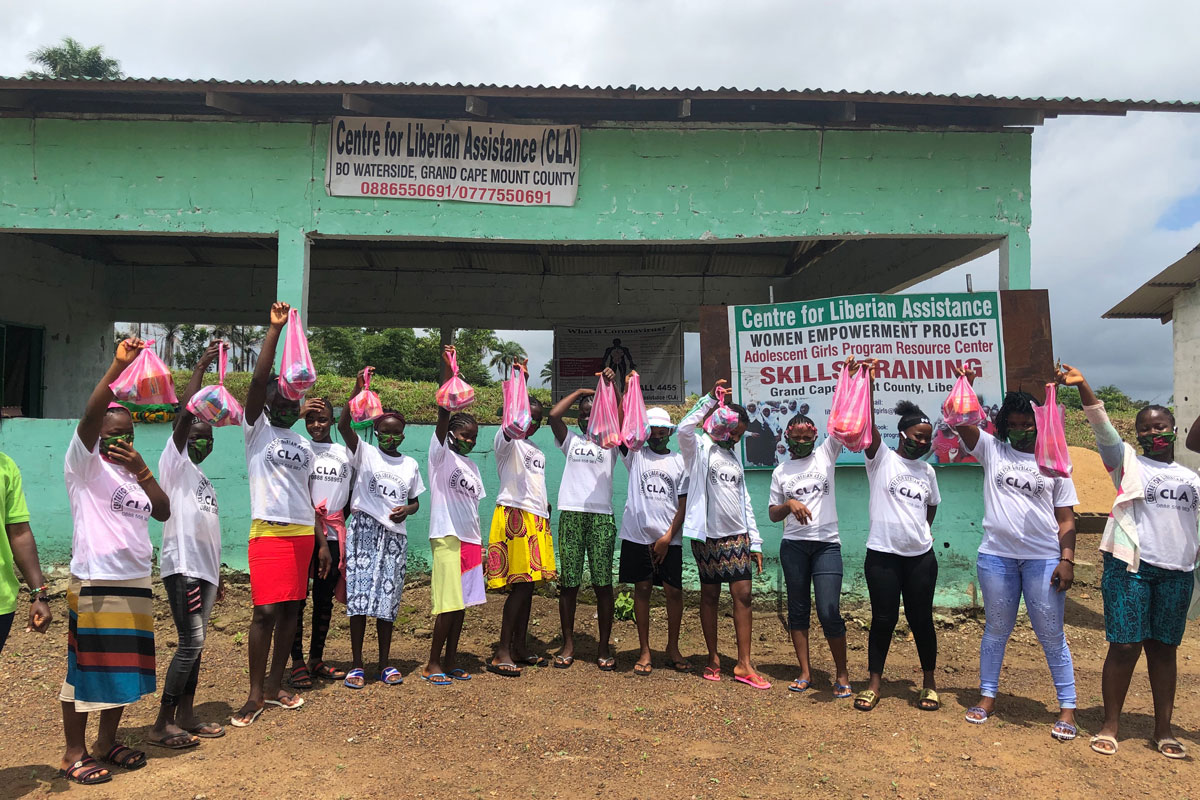
Mauritius
Halley Movement
Mauritius | Port Louis
Halley Movement is a coalition of charitable organizations working for the welfare of children and families in Mauritius and in the Southern African region.
Senegal
Action Femme Enfant
Senegal | Saint Louis
Dedicated to protecting the rights of teenage mothers and their children, Action Femme Enfant (AFE) promotes their economic and social inclusion through a safe house for pregnant teens; mentoring, literacy support, and vocational training for young mothers; and a comprehensive early childhood development program for their children. AFE also helps to reunite teen mothers with their families and safely reintegrate them into their communities.
Association Jeunesse Espoir
Senegal | Saint Louis
Association Jeunesse Espoir (AJE) advances the rights and education of adolescent girls, especially those who are street-based or are at high risk for human trafficking, modern-day slavery, sexual violence, or abuse, by providing the girls with a safe space and psychosocial support, helping to reunite them with their families, and assisting them to go to school.
Maison de la Gare
Senegal | Saint Louis
Maison de la Gare (MDG) promotes the social and economic integration of talibés, young boys who are sent by their families to urban areas to study the Qur’an and instead end up enduring extreme forms of abuse, neglect, and exploitation.
Sierra Leone
Center for Advocacy and Sustainable Empowerment Sierra Leone
Sierra Leone | Bo
Dedicated to removing barriers to girls’ education in Sierra Leone, Center for Advocacy and Sustainable Empowerment (CASE SALONE) empowers girls to stay in school, realize their potential, and take on leadership positions. Working in schools and communities, CASE SALONE establishes student empowerment clubs; trains girls in leadership and public speaking; and provides girls with safe spaces and counseling services. It also operates savings initiatives to help parents invest in their children’s education.
Children’s forum Network – Kenema
Sierra Leone | Kenema
In a community where the prevalence of FGM/C is over 90%, Children’s Forum Network – Kenema creates safe spaces for children to discuss and raise public awareness about the issues affecting their lives. A local, autonomous branch of Sierra Leone’s national children’s parliament, CFN-Kenema also organizes trainings and conferences on specific child rights issues to help young people speak out against child rights violations.
Integrated Development Program for Teenagers
Sierra Leone | Bo
Integrated Development Program for Teenagers (IDP4T) empowers teens in Sierra Leone to have agency over their bodies and make informed life decisions. It conducts Teen Talk programs in schools, operates a helpline, and provides direct services to young survivors of violence and trafficking.
Wi Gial Pekin Dem Foundation
Sierra Leone | Kenema
Empowering girls to stand up for their rights and dignity, Wi Gial Pekin Dem Foundation (WGF) works in schools to teach girls about sexual reproductive health and rights, educate them about menstrual hygiene and management, and provide them with sanitary pads. The organization also uses its extensive community relationships to rescue girls who are at risk of FGM/C, trafficking, or abuse, and provides mentorship to out-of-school girls, especially those who have left school due to unplanned pregnancies.
Women Against Violence and Exploitation in Society
Sierra Leone | Bo
Women Against Violence and Exploitation in Society (WAVES) develops the capacity of girls in Bo, Sierra Leone, both in and out of school, to speak out against sexual and gender-based violence, advocate for sexual and reproductive rights, and become agents of change in their communities. The organization also conducts extensive community outreach and advocates for policy change to benefit girls and women.
South Africa
18twenty8
South Africa | Johannesburg
Working with girls and young women between the ages of 18 and 28 from underserved communities, 18twenty8 promotes their educational and personal development, encouraging them to pursue higher education and empowering them through life skills workshops, mentoring, career guidance, and financial assistance.
Jelly Beanz Inc.
South Africa | Cape Town
Jelly Beanz Inc. (JBI) promotes child protection and safety through direct services for sexually abused children and those who have experienced trauma, abuse, or neglect, offering in-depth individual and group counseling, as well as life skills training on such topics as HIV/AIDS prevention and management, how to report abuse, and career opportunities.
Nayanaya Trust
South Africa | Johannesburg
Founded by an award-winning South African filmmaker, Nayanaya Trust empowers young people – particularly young women – to tell their stories, develop career skills, and drive social change through the power of filmmaking.
xtreme Youth Projects
South Africa | Ekurhuleni
In the township of Tembisa, where 95% of the population is low-income, Xtreme Youth Projects offers a range of programs to empower children and youth, including life skills development, an entrepreneurship program, and performing arts activities that break down stereotypes, encourage positive self-image, and nurture young talent.
Zambia
Chimwemwe Organisation for the Promotion of Childhood Rights, Education and Development
Zambia | Chipata
Chimwemwe Organisation for the Promotion of Childhood Rights, Education and Development (COPECRED) provides comprehensive early childhood development care for preschool-age children and offers entrepreneurship guidance to families affected by HIV/AIDS, using the child as an entry point.
Dackana Home Based Care
Zambia | Kabwe
Dackana Home Based Care works closely with public schools in informal settlements to inspire children and youth who are involved in hazardous work to overcome poverty and low self-esteem, go to and stay in school, acquire livelihood skills, and improve their general wellbeing.
Hope for the Needy Zambia
Zambia | Nchelenge
Hope for the Needy Zambia (HONZA) establishes community-run early childhood development and care programs for rural children, most of whom are HIV-positive, have lost their parents to AIDS, or have been otherwise affected by HIV/AIDS and who would otherwise have little or no chance to go to school.
Kachere Development Programme
Zambia | Chipata
Kachere Development Programme (KDP) offers early childhood care for young children and tuition assistance, skills training, healthcare, and psychosocial support for youth, with a focus on rural-based migrant children who have lost their parents to AIDS or whose parents are living with HIV/AIDS; adolescent girls removed from forced early marriages; and survivors of sexual abuse and gender-based violence and their children.
Europe & Eurasia
Bulgaria | Kyrgyzstan | North Macedonia | Romania | Serbia | Tajikistan | Turkey | Ukraine | United Kingdom
Bulgaria
Gender Education, Research and Technologies Foundation
Bulgaria | Sofia
Gender Education, Research and Technologies Foundation targets women and youth in initiating and implementing activities to enhance gender equality and social and gender justice in society. GERT aims to raise public awareness of inequality and gender stereotypes, enhance tolerance and reject violent discrimination, educate younger generations on reproductive rights and risks, involve NGOs in collaborative practices, and support networks for economic solidarity among women’s groups.
Kyrgyzstan
Children of Tien-Shan
Kyrgyzstan | Balykchy
Children of Tien-Shan provides a variety of crisis services to children and youth who are at risk of neglect and abuse in Balykchy. Children of Tien-Shan also offers an emergency shelter and helps place children with safe foster families, offering them better care and support than in orphanages and government-run boarding schools.
Read more: Children of Tien-Shan provides essential services to Kyrgyz kids during COVID-19
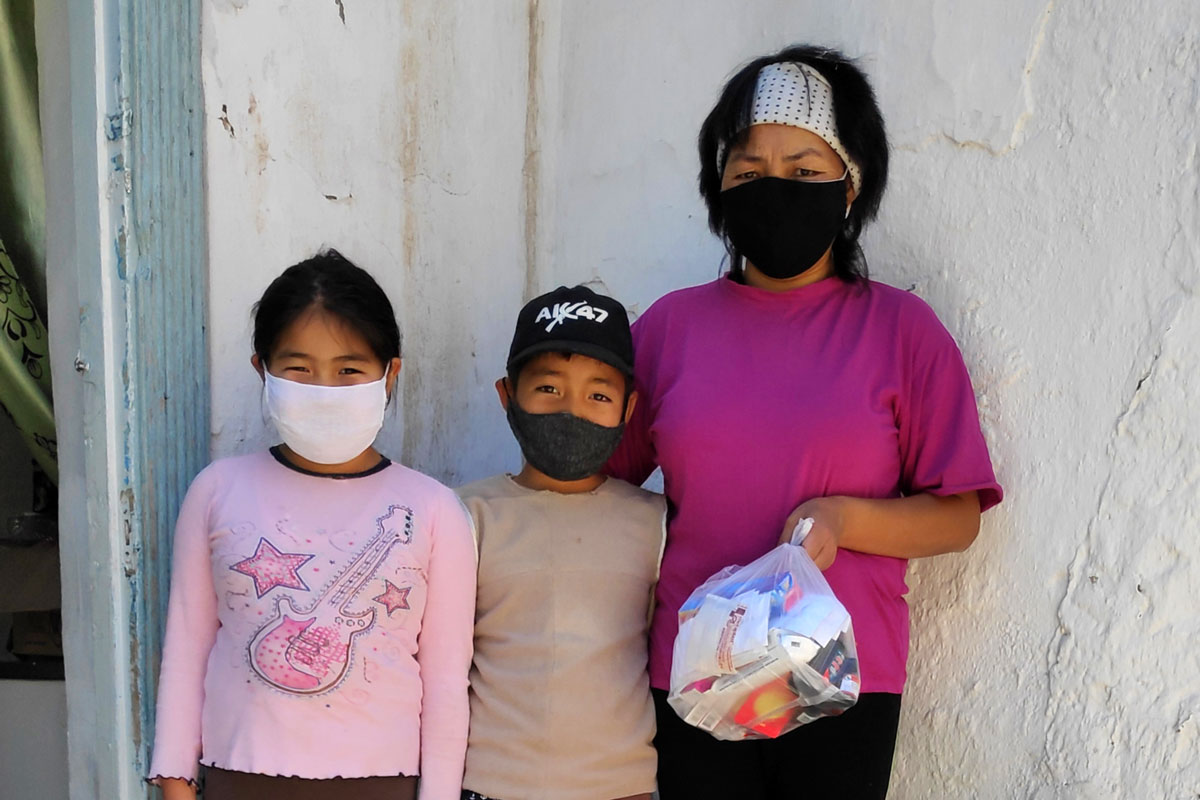
Hand in Hand
Kyrgyzstan | Bishkek
Hand in Hand provides treatment, therapy, and educational lessons for children with autistic spectrum disorder (ASD).
National Federation of Female Communities of Kyrgyzstan
Kyrgyzstan | Bishkek
The National Federation of Female Communities of Kyrgyzstan (NFFCK) is a girls-led organization working throughout Kyrgyzstan to empower girls and decrease child marriage and violence against girls through public awareness programs, girls’ leadership and health programs, community outreach, and national advocacy.
Our Voice
Kyrgyzstan | Bishkek
Our Voice focuses on providing all necessary support to enable orphans and other graduates of state-run institutions in Kyrgyzstan to successfully transition to independent living.
Ravenstvo
Kyrgyzstan | Karakol
Ravenstvo provides educational and physical rehabilitation, home visits, consultations, income-generating activities, and access to employment for children and youth with disabilities.
Ulybka Public Foundation
Kyrgyzstan | Osh
Ulybka Public Foundation focuses on promoting leadership, tolerance, and entrepreneurship among children and youth in southern Kyrgyzstan, including orphans, street children, and working children.
North Macedonia
Legis
North Macedonia | Skopje
Legis advocates for human rights and provides humanitarian, legal, and medical assistance to migrants and asylum seekers, with a focus on registering and protecting unaccompanied minors. The organization – which involves young volunteers and migrants in its decision-making – offers psychosocial support to migrants in detention centers and deploys mobile assistance teams to provide support for migrants across the country.
Read more: Continuing the fight for migrant rights in North Macedonia
Romania
Asociatia pentru Libertatea si Egalitatea de Gen
Romania | Sibiu
Asociatia pentru Libertatea si Egalitatea de Gen (ALEG) promotes gender equality and fights gender-based violence and discrimination in Romania.
Serbia
Asylum Protection Center
Serbia | Belgrade
Asylum Protection Center (APC) provides legal, psychological, and other assistance to asylum seekers in Serbia, serving children aged 0 to 24 through consultations with lawyers, social workers, and psychologists.
Danica
Serbia | Jabuka
Danica provides psychosocial support, conducts outreach on social and legal rights, and holds workshops on domestic violence, reproductive and sexual health, and the importance of education for Roma children and youth.
Incest Trauma Center
Serbia | Belgrade
The Incest Trauma Center serves as a counseling center to provide psychological support to child and adult survivors of sexual assault, and as a training center to educate professionals who work to protect women and children from domestic abuse. The ITC also advocates for victims of sexual abuse by raising public awareness and connecting communities with policymakers.
Know How Center
Serbia | Novi Sad
The Know How Center (KHC) supports Roma and other vulnerable children and youth by holding workshops that encourage parents to send their children to preschool, engaging in outreach to help families access social services, providing education support, and running a youth program focused on improving the psychosocial health of teenagers.
Tajikistan
Dushanbe Youth House
Tajikistan | Dushanbe
The Dushanbe Youth House provides educational and vocational courses for children – including street children, working children, and children from poor families – as well as psychological support to the children and their families.
Iroda
Tajikistan | Dushanbe
Iroda provides access to quality services appropriate for the unique needs of children and youth with autism spectrum disorders (ASD), trains professionals and parents on working with children with ASD, facilitates a parent support group, and helps children with ASD become enrolled in formal school.
Turkey
Mavi Kalem Social Assistance and Charity Association
Turkey | Istanbul
Mavi Kalem Social Assistance and Charity Association mobilizes community volunteers in Turkey to empower women and children, including migrants and refugees. The organization offers arts and education programs for children, including workshops for girls on physical and mental health, sports, and protection from violence and sexual abuse.
Read more: Innovative education for child refugees in Turkey | Protecting refugee women and children on the Turkish border
Ukraine
Early Intervention Institute
Ukraine | Kharkiv
The Early Intervention Institute’s work focuses on preventing the institutionalization of infants and young children who have developmental delays and disabilities and integrating them into their families, schools, and communities through therapeutic and educational services.
Kiev Children and Youth Support Center
Ukraine | Kyiv
The Kiev Children and Youth Support Center, founded by orphanage graduates and staff, offers legal, medical, psychological, and financial assistance to young people who have aged out of Kyiv’s orphanages.
Pravo Vibora
Ukraine | Kharkiv
Pravo Vibora provides physical rehabilitation for children with disabilities, offers educational and employment support for youth, and conducts outreach to overcome negative stereotypes about people with disabilities.
united Kingdom
Breaking the Silence
United Kingdom | Bradford
Breaking the Silence (BTS) supports a particularly underserved population of West Yorkshire: Black-African, Afro-Caribbean, and South Asian boys and young men who are affected by, or are survivors of, sexual abuse, many of whom are reluctant to seek help because of systemic racism and patriarchal structures. BTS conducts extensive community outreach to find its clients, supports them through interventions to keep them safe, and then offers individual and group counseling to meet each survivor’s unique needs.
Green Shoes Arts
United Kingdom | Essex
Green Shoes Arts (GSA) works with the hardest-to-reach children and youth in the Greater London borough of Barking and Dagenham through creative arts programs, including drama and theater programs.
Juvenis
United Kingdom | London
With an emphasis on serving youth involved in or at risk of criminal behavior, Juvenis helps young people in South London to turn their lives around and re-engage with employment, education, or training. Its specialized programs include mentorship for youth in police custody, therapy and life skills training for survivors of domestic violence, an expressive safe space for girls and young women, and individualized support for disenfranchised youth entering the job market.
Integrate UK
United Kingdom | Bristol
A youth-focused organization in the United Kingdom, Integrate UK works to address female-genital mutilation (FGM) and honor-based violence (HBV) through peer education in schools, training for frontline professionals, film development, stage productions, conferences, and advocacy with local and national government such as police departments, schools, and Parliament.
Leaders in Community
United Kingdom | London
Leaders in Community (LiC) engages vulnerable children and youth in Tower Hamlets through an employment program, an enterprise program that supports start-ups, music lessons, sports, a community garden, volunteer opportunities, and a leadership and governance program.
Little Fish Theatre
United Kingdom | Greenwich
Little Fish Theatre provides youth aged 10 to 19 who live in poor communities in south London with arts-based programs such as productions, workshops, counseling, and advocacy that develop self-empowerment and life skills and encourage empathy and positive communication.
Violence Intervention Project
United Kingdom | London
The Violence Intervention Project (VIP) supports young people who have been involved in or are at risk of violent behavior. Through one-on-one outreach and group sessions, as well as school workshops, sports activities, and camps, VIP helps youth to open up about their experiences, develop positive relationships, and end the cycle of violence in their communities.
YOH
United Kingdom | London
YOH is a locally led community group focused on supporting marginalized children and young people in and around Central and East London and parts of Essex. Using an award-winning approach, YOH engages young people that have slipped through the net of existing service provision and supports their transition to self-empowerment and positive outcomes. Its support ranges from providing essential supplies to employment access.
Asia
Afghanistan | Bangladesh | Cambodia | India | Nepal | Pakistan | Sri Lanka | Thailand
Afghanistan
AFGHAN INSTITUTE OF LEARNING / AFGHANISTAN
Afghanistan | Kabul
The Afghan Institute of Learning (AIL) increases access to education in Afghanistan by providing women and children with education, health care, and health education. The organization also supports youth clubs and offers trainings on a range of topics including peace, leadership, and human rights.
Bangladesh
Alor Pothe Nobojatray Foundation
Bangladesh | Dhaka
Alor Pothe Nobojatray Foundation (APON) works with children, their families, and their communities to promote basic rights such as education, health, and hygiene for working children.
local education and economic development organization
Bangladesh | Dhaka
Local Education and Economic Development Organization (LEEDO) eliminates barriers to success for street children in Dhaka by creating access to education, housing, and economic livelihood opportunities.
Sanjog Bangladesh
Bangladesh | Dhaka
Sanjog Bangladesh works to create a society with equal distribution of power and universal access to services by protecting and empowering street and slum-dwelling children who are often orphaned or involved in labor.
Shobujer Ovijan Foundation
Bangladesh | Dhaka
Shobujer Ovijan Foundation (SOF) promotes the rights and well-being of women working in garment factories and of their children through specialized crèches, healthcare, livelihood skills training, and community development services.
Shusamaj Foundation
Bangladesh | Jessore
Based on Bangladesh’s western border with India, Shusamaj Foundation works to prevent cross-border trafficking by engaging youth groups in peer-to-peer education on reproductive health, personal safety, and reporting trafficking incidents. The organization also runs a microcredit program that helps families establish healthy and sustainable livelihoods.
SOHAY
Bangladesh | Dhaka
SOHAY works with poor, disadvantaged, and impoverished communities in six urban slums in Dhaka to provide education, vocational and skills training, and health programs to enhance the capacity of the community and to help eradicate poverty.
Voluntary Association for Family Welfare and Social Development
Bangladesh | Dhaka
Voluntary Association for Family Welfare and Social Development (VAFWSD) enhances public capacity on human rights, governance, education, and poverty alleviation by providing need-based support and technical assistance.
Cambodia
Aziza’s Place
Cambodia | Phnom Penh
Aziza’s Place (AP) works with children from the Stung Meanchey dumpsite and city slums around Phnom Penh, providing a safe environment; access to mainstream schooling and supplemental educational activities; programs on healthy lifestyles, community involvement, and visual arts; sports activities; and reintegration services to reunite children with their families.
india
Aarohan
India | New Delhi
Aarohan generates opportunities for growth and development while providing holistic support and nonformal education to children who have either dropped out of school or never been to school in the slums surrounding the Malviya Nagar area in New Delhi.
Avani
India | Mumbai
Led by a former child laborer, Avani offers a range of programs and services to support children and youth who are at risk of being trafficked for labor or sexual exploitation. Its programs include a home for rescued child laborers, orphans, and other children in Kolhapur; and gender equity training for boys.
Read more: Going above and beyond: Snapshots of Avani’s work during the pandemic | A silver lining to COVID-19: courage, empathy, and generosity
Faith Foundation
India | Shillong
Working in and around the city of Shillong, Faith Foundation focuses on the prevention of child sexual abuse; rescue, rehabilitation, and reintegration of trafficked women and girls; prevention of domestic violence; prevention of early marriage; and care and support for abandoned women.
Read more: In India, Faith Foundation is getting to the root of community needs
Her Choices Trust
India | Hyderabad
Her Choices Trust is dedicated to ending violence, abuse, and exploitation of women and children in India by addressing two of the most prevalent and difficult forms of abuse – domestic violence and trafficking of young girls for sexual exploitation. It works to eliminate sex trafficking by making legal assistance available and accessible to people through a national helpline, and by raising awareness about trafficking in villages where vulnerability factors are particularly high.
Jamghat
India | New Delhi
Jamghat, an innovative initiative led by street children, provides a safe and supportive environment for street children to enable them to evolve physically and emotionally and to have opportunities to make informed and free choices.
Magic Bus India Foundation
India | Mumbai
Magic Bus equips children and young people from 12 to 18 years old with the skills and knowledge they need to grow up and move out of poverty, enabling them to complete secondary education, delay their age of marriage, and secure sustainable livelihoods.
Masoom
India | Mumbai
Masoom ensures quality education for underprivileged students in night schools by strengthening the schools’ methodologies and curriculum and by customizing the schools’ operation to the needs of the students.
Purnata
India | Mumbai
Purnata rescues, rehabilitates, and reintegrates survivors of human trafficking in Mumbai and West Bengal, with a focus on prevention at source, transit, and destination points. Its primary mission is to protect women and children from trafficking and restore survivors to a life of dignity, purpose, and economic independence.
Rural Aid
India | Hamiltonganj
Rural Aid empowers people employed by the tea industry in West Bengal to advocate for their rights, while also providing their children with critical support to prevent child exploitation, trafficking, and sexual abuse. It offers child safety education in low-income schools; collaborates with local government and protection agencies to track and rescue missing children; and helps mobilize vulnerable workers in the tea industry to demand fair wages, access to healthcare, and education.
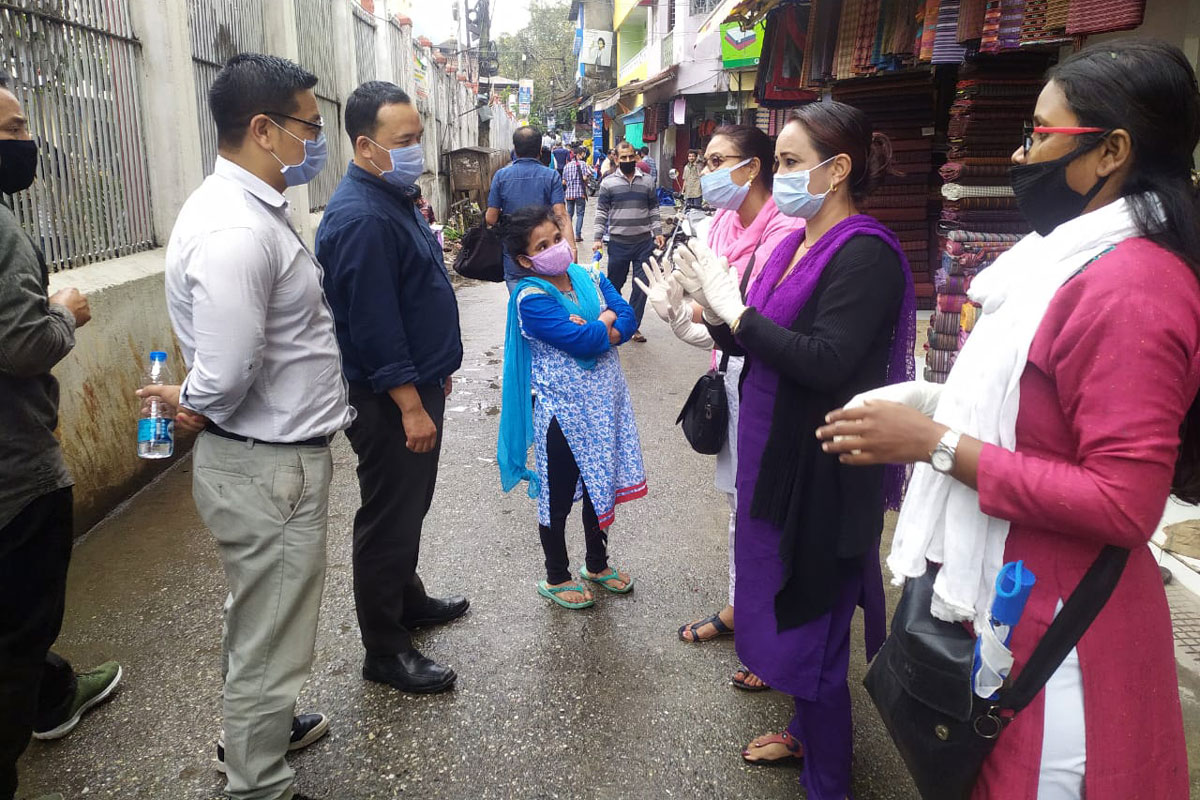
Sahyog Care for You
India | New Delhi
Sahyog Care for You works to eliminate socioeconomic inequality through education and health initiatives in the slum communities of Delhi.
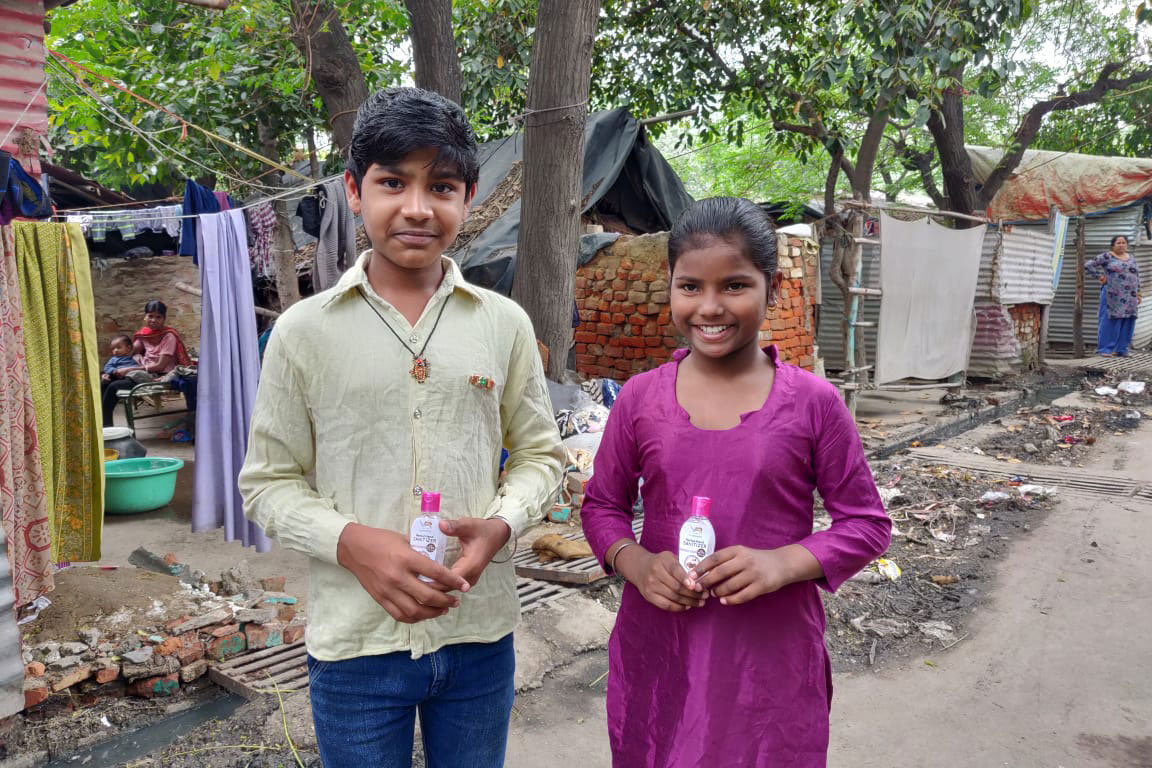
Sama Foundation
India | Bangalore
Sama Foundation provides a range of programs and services to meet the educational, medical, and emotional needs of children with disabilities. To promote inclusive and accessible learning, the organization currently runs five bridge centers in government schools, where children with severe disabilities and sensory impairment receive extra care and attention.
Social and Development Research and Action Group
India | Noida
Social and Development Research and Action Group (SADRAG) focuses on building the capacity of children and women through education, health services, and skill development, while involving stakeholders such as local school systems, local government, civil society organizations, and community members to facilitate awareness of the right to education and to sensitize the community on children’s and women’s rights.
Sri Arunodayam Charitable Trust
India | Chennai
Sri Arunodayam provides protection, care, and therapy to mentally challenged and disabled children, including those abandoned by their families, in Tamil Nadu, where government resources for these children are extremely limited.
Suprava Panchashila Mahila Uddyog Samity
India | Berhampore
Working with women and children in West Bengal, which has the highest rates of trafficking and child marriage in India, SPMUS offers a range of programs that focus on rescue, rehabilitation, and reintegration of trafficked women and girls; prevention of domestic violence; prevention of early marriage; and care and support for deserted women.
The YP Foundation
India | New Delhi
The YP Foundation (TYPF) is a youth-led organization that works to instill a sense of commitment, responsibility, and connection between young people, their environment, and society.
Nepal
Asha Nepal
Nepal | Kathmandu
Asha Nepal runs a transitional home for children and youth who have been trafficked, and provides them with educational scholarships, reintegration workshops, employment support, and foster care placement.
Read more: Keeping families together during the pandemic
Center for Awareness Promotion
Nepal | Kathmandu
The Center for Awareness Promotion (CAP) rescues and rehabilitates girls and young women in the adult entertainment industry in Kathmandu using mobile counseling, a shelter, and reintegration through education and training.
Partnership for Sustainable Development Nepal
Nepal | Kathmandu
Partnership for Sustainable Development Nepal (PSD) offers sustainable, community-based programs in education, youth development, health and sanitation, and the environment, including an after-school program held in orphanages.
pakistan
Chanan Development Association
Pakistan | Lahore
Chanan Development Association (CDA) strives to improve the status of youth, especially girls, by promoting equal and active participation in decision making, policy making, planning, and management.
Grace Association
Pakistan | Islamabad
GRACE Association promotes quality early childhood, primary, and secondary education and works to ensure an accessible, safe, and inclusive educational environment for all children, especially girls and children with disabilities.
Roshni Research and Development Welfare Organization
Pakistan | Karachi
Roshni Research and Development Welfare Organization, a one-of-a-kind initiative in Pakistan, focuses on recovering missing children in the first 48 hours after their disappearance, facilitates the children’s rehabilitation, builds the capacity of communities to protect children and more quickly recover missing children, and advocates for better laws and policies to address this neglected but critical issue.
Sanjog Pakistan
Pakistan | Lahore
Sanjog Pakistan offers access to legal and psychosocial support for children in conflict with the law and trains law enforcement personnel, judiciary members, and probation officers in the safe and appropriate care of the children in their custody.
Sri Lanka
Rural Economic and Community Development Organization
Sri Lanka | Kantale
Rural Economic and Community Development Organization (RECDO) works with socioeconomically marginalized communities to address a variety of community needs, including education, food security, healthcare, and microfinancing.
Sunshine Charity
Sri Lanka | Colombo
The Sunshine Charity was founded in the aftermath of the December 2004 tsunami to take care of children affected by the devastation in the Trincomalee district. Its holistic childcare center provides education, nutritious meals, and creative and interactive workshops for children aged 2 to 8.
Thailand
Center for Girls
Thailand | Chiang Rai
Located in the Chiang Rai province of northern Thailand, Center for Girls works to prevent child trafficking along the Thailand-Laos border, conducts daily children’s groups to provide support and teach life skills, and trains schoolchildren and teachers in children’s rights.
Friends Without Borders Foundation
Thailand | Chiang Mai
Friends Without Borders Foundation (FWB) provides training in alternative media production and human rights education to promote and protect the rights of refugees and migrants along the Thailand-Myanmar border.
Thai Child Development Foundation
Thailand | Chumphon Province
Thai Child Development Foundation provides quality education to children with disabilities at its own education center, while also working with local schools, parents, and village leaders in Thailand’s Chumphon Province to ensure that children with disabilities have access to education, life skills trainings, and healthcare.
Zy Movement Foundation
Thailand | Chiang Mai
Zy Movement Foundation works with schools, universities, hospitals, parents and government stakeholders to ensure that children with disabilities have access to inclusive education, to provide cutting-edge technology solutions to children with physical disabilities, and to change the social mindset about the abilities of their children.
Read more: From mountaintops to online food delivery – adapting to COVID-19 in Thailand
